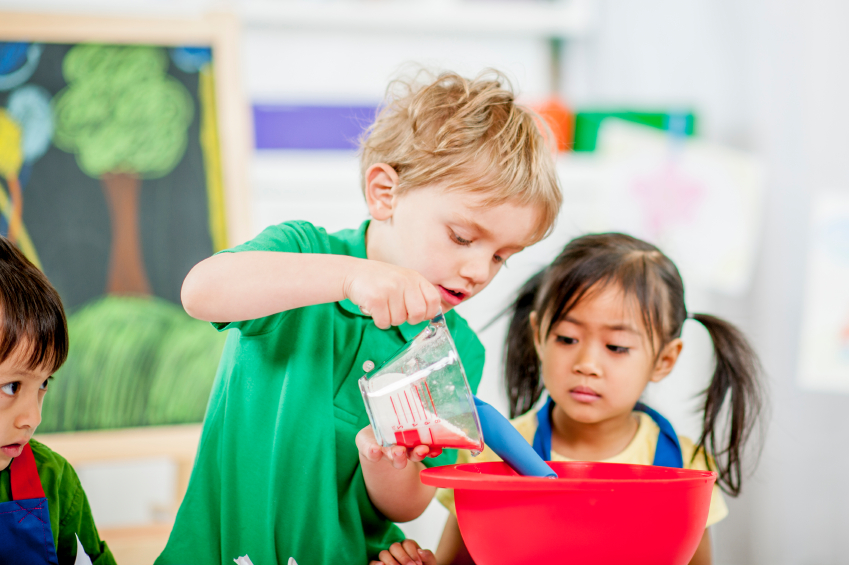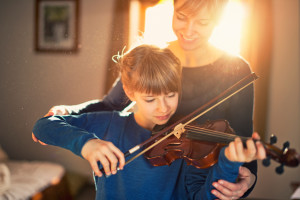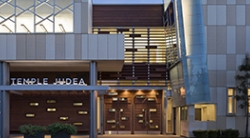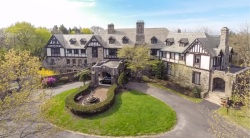
The opportunities for gifted children to explore their interests and expand their amazing abilities have never been greater, with schools for the gifted and university-developed resources offering unprecedented programs for all ages.
There are as many avenues to pursue as there are areas of talent and range from the logical, mathematical to the expression of language arts, to the aesthetic, music and fine arts.
Virtually every traditional academic subject is now represented in some program for the gifted child. And new subject programs are being added every day, like neuroscience, robotics, and genetics.
There are many organizations throughout the world sponsoring programs for the gifted, and offering advice to parents and teachers as well as providing guidelines, standards and models for program development in virtually every category of learning.
With so many program choices, it is impossible to describe them all in one article. But here are five areas that have received a substantial amount of attention for enhancing the abilities of the gifted.
Science, Technology, Engineering and Mathematics
There has been a growing emphasis on a group of related subjects in the field of mathematics. Known as STEM, this group consists of Science, Technology, Engineering and Mathematics. The STEM projects are taught by using simulations to address real-world situations and problems – like designing a city or generating electricity for a community.
Real-world simulations involve the understanding of multiple disciplines like mathematics and engineering, and provide a rich learning environment that spurs imagination and yet requires practical application.
The world of science itself is virtually limitless. A child can dissect a Virtual Frog named “Fluffy” in a program sponsored by Berkeley Lab’s Center for Science and Engineering.
A child can learn the secrets to genetics, inherited traits, and X and Y chromosomes in the Biology Project Mendelian Genetics from Arizona University. Or he can learn about cell immunity, microbes, bacteria and antibodies in a program called Cells Alive. The field of Biology is wide open for the gifted child to learn, engage and interact with advanced computer modeling and video production.
And if the brain is of interest, the field of neuroscience is being explored more than ever with the discovery of neural pathways and the brain’s plasticity which provide hints to learning more about thinking, memory, and the effects of brain-related injuries.
Language Arts and Writing
The ability to communicate will never be more important than it will in the next century with the world getting smaller and multicultural cooperation getting becoming more prevalent. The gifted child with an interest in learning different languages and being able to understand research or literature or art from a different culture will be able to contribute so much value to society.
The foundation of all communication is simply reading and writing or speaking, comprehending what is read, knowing the subtleties of sentence structure and composition, and identifying with the recipient of a communication. While learning can be one-way, all communication is two-way. Programs for the gifted break down the process into its simplest forms and grow and build on each branch.
Language Arts programs for the gifted child are taking on a different philosophy of instruction. Dr. David Levande is Associate Professor of Education at Southern Connecticut University. He observed that children who were later identified as gifted could read when they began school. In his book, Gifted Readers and Reading Instruction, he compiled a list of guidelines that included these:
- Make challenging materials available to young gifted readers
- Facilitate critical and creative thinking
- Use more analogies, especially for older students
- Use inductive rather than deductive reasoning
- Avoid unnecessary repetition
- Use projects like simulations, games, models and newscasts
Dr. Levande encouraged enrichment programs for the individual student and acceleration of instruction regardless of grade placement. This philosophy of individualization is key to the success of all programs for the gifted child.
 Music
Music
The Wisconsin Music Educators’ Association (WMEA) recognizes the importance of creating music programs music for the gifted and talented. The association observes that these programs of study do not depend on language development – they are an abstract discipline. And there are many ways to determine a child’s skills and abilities in the field, including the following:
- Musical awareness and discrimination (sound, rhythm and pitch)
- Creative interpretation
- Music behavior and performance
- Intensity and focus
The organization recommends that the gifted child should be evaluated not only on current skills and abilities but on potential development as well. WMEA is just one of many organizations throughout the world that appreciate the gifted musician.
Visual Arts for Gifted Children
The Fine Arts can be divided into Performing Arts (children with talent in voice, drama, and/or dancing) and the Visual Arts (drawing and painting). The category of Performing Arts also often includes music.
Mary Codd wrote on Recognizing the Child Gifted and Talented in Visual Art. She observed how difficult it is to define giftedness in the Visual Arts. There are behavioral traits and characteristics of the artwork to evaluate. And there are perceptual and cognitive aspects that are also part of the equation.
Behavioral traits include things like starting early to draw and quickly developing the talent to draw better. The gifted child is self-directed and self-motivated, staying at the task longer than other children.
The artwork of gifted children shows more attention to detail and some inventiveness. Artistic expression often comes from observing objects and environment. The gifted child is better at using aspects of composition, shape, texture, contrast and pattern.
Performing Arts
Beth Wright wrote an article, Performing Arts Instruction for Exceptionally and Profoundly Gifted Children, which referenced some of the research done in the field. The theory is that there are three critical areas that need to be addressed in the Performing Arts education of gifted children: affective, cognitive and instructional.
Gifted children are more sensitive, more intense and more driven to perfection. They need to feel that they are producing something beautiful and valuable in dance, drama or music. They drive to excel.
Finding the right instructor for a gifted child can be a difficult challenge. The instructor has to understand the nature of the gifted individual and support his or her desire to express what is felt in a way that satisfies this drive for excellence and value.
Good instructors can be found in private schools for the gifted, in conservatories, colleges and universities, or even with private tutors. If they have the experience and understanding of working with gifted students, they will be good choices.
There are national guidelines for teachers. The National Association for Gifted Children provides faculty standards for teacher preparation programs in gifted and talented education. These standards speak to experience and contributions in the field.
The key is understanding, experience, compassion and dedication to helping a gifted child excel. When considering a program, the instructor and method of instruction should also be fully evaluated. What program is your gifted child interested in? Let us know in the comments below!






